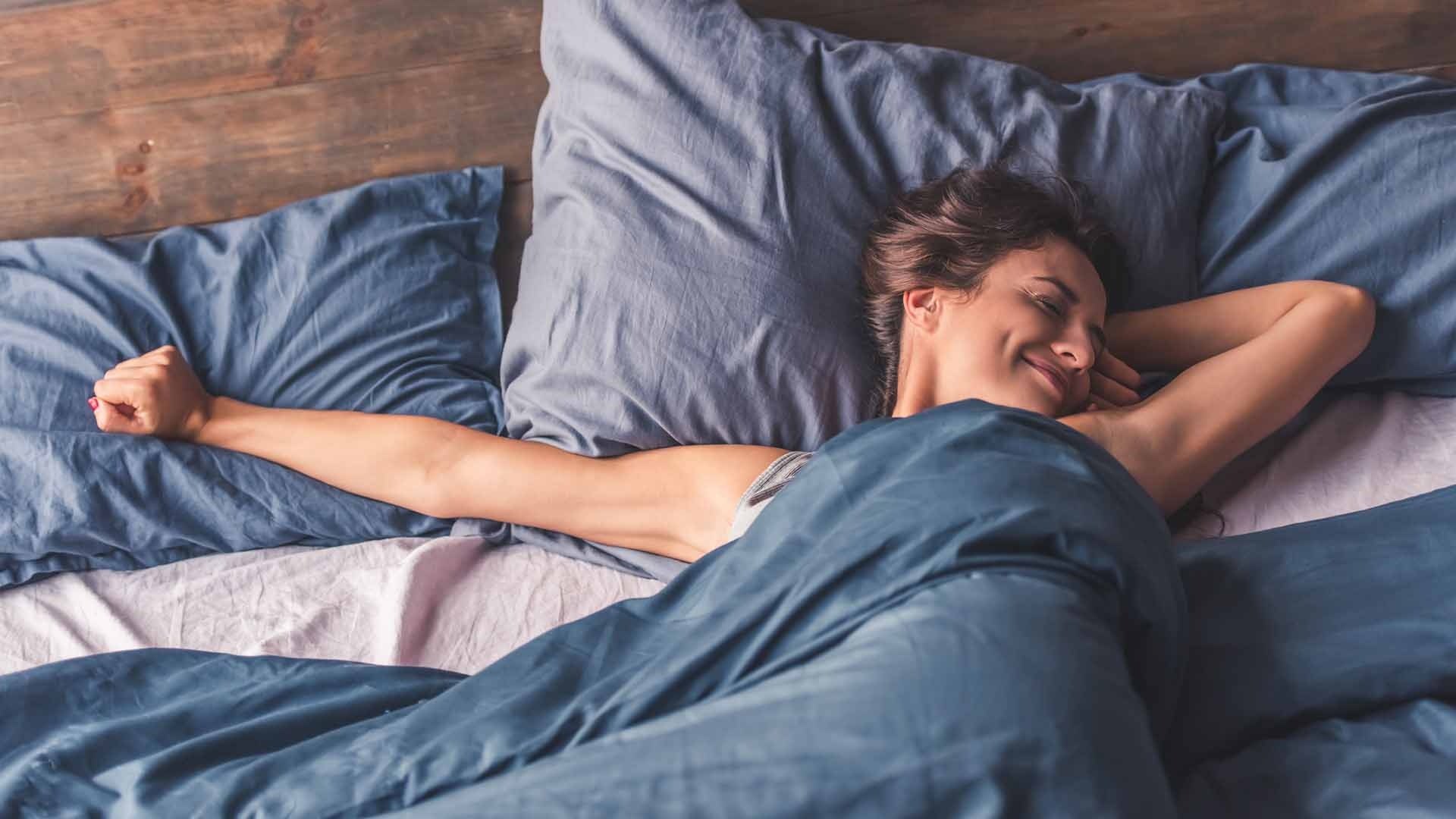Feeling tired? Struggling to keep your eyes open past 3pm? Your sleep hygiene could be one reason why.
Luckily, there are several, simple things you can do to give yourself a better chance for a good night's sleep. And it all starts in your bedroom.
Set your surroundings
It goes without saying that if you can dedicate your bedroom entirely to the practice of getting a good night’s sleep, you should go right ahead. However, if your bedroom needs to serve multiple functions you can still create a comfortable and relaxing sleep space.
Sleep expert Elina Winnel says simple adjustments such as “dimming the lights at least two hours before bed can optimise your melatonin production” – the hormone responsible for a good night’s sleep.
Other small changes such as playing classical music or setting your air conditioning (if you have it) to between 16 – 20°C can transform your room into a cool, relaxing environment that is ideal for sleep.
Block out the light
Minimising external distractions such as noise and light is key to creating an ideal sleep environment. Winnel advises making sure your curtains are properly closed before bed, or using clothing pegs or binder clips to keep the light out as much as possible:
“If you do find yourself in an environment that is noisy or seeps light, you can use a good quality eye mask that fits your face snuggly and a good quality pair of earplugs,” she says. “If you prefer not to sleep in complete silence, download a white noise app. The Relax Melodies app, for example, has a white noise option along with natural sounds like thunderstorms, rain, birds or the ocean.”
Get a good mattress
Felicity Wood, founder of Bad Backs, suggests a good night’s sleep starts with a bed that your body is happy to fall into at the end of each day.
“Your choice of bed, pillow and other accessories is critical for a good night’s sleep,” she says. ‘If you don’t get the basics right, you’re missing out on quality sleep. It’s the equivalent of heading off for a run in an ill-fitting shoe.”
Here are a few tips she recommends for choosing the right mattress:
- Go for quality. Set yourself a budget and look for the best quality available within that. Typically, you’ll find a choice of materials such as memory foam (a pressure relieving man-made fibre), latex natural fibre, pocket springs and various qualities of premium foam (typically used in the base of the mattress).
- Consider your temperature. Some of us do sleep ‘hot’, so the recent introduction of gel cooling may be worth considering.
- Soft, medium or firm? If you buy a mattress with a good firm base, then the top comfort layer should be just what feels good to you.
- Choose a good base. Your new mattress should rest on a flat, hard surface. If you have a slat base, ensure the slats are close together.
Choose the right pillows
Once you’ve got a good mattress it’s time to turn your attention to your bedding. With so many affordable options available, it’s easy to feel overwhelmed. Wood suggests starting with good quality pillows:
- Invest in quality materials. Look for wool, buckwheat hulls, latex or memory foam.
- Aim for neck support. There are several shapes on the market including traditional, curved and contoured. Pillows are also available in soft, medium and firm. As long as your neck is supported, simply choose what feels great for you.
- Pay attention to length. There are a range of different lengths, width and depths. If you have broad shoulders or long neck you may find a taller pillow will give you the appropriate support and comfort to get that dream sleep.
Switch off from screens
While your smartphone may claim to have all the answers to how to sleep better (there are currently over 50 sleep related apps in the Apple Store) it could be our biggest problem when it comes to drifting off. Looking at screens in the evening can inhibit our melatonin production (the sleep and relaxation hormone) keeping our brains alert long after we should be asleep.
Winnel advises trying to avoid our devices for a couple of hours before bed, or at the very least minimising our intake of blue light.
“Ensure you have apps on your devices to block out the blue light. Some devices now also allow for this to be done in the settings. Similarly bright lights should be avoided. Use warm and minimal lighting in the evenings.”
Create a bedtime routine
It’s all well and good creating the perfect environment for a good night’s sleep. But what happens when it’s more than our surroundings keeping us up at night?
“The foundation for a good night’s sleep actually begins from the moment you wake up,” Winnel says. “The level of stress we experience during the day will affect the level of stress hormones we take to bed with us, and impact our sleep.”
Dealing with stress is often easier said than done, but having a calming bedtime routine can be helpful for allowing our minds to rest. “A good wind down routine can help us shift gears and activate our ‘off’ switch.”
While intense exercise can keep us awake, stretching or slow yoga can help quieten the mind, reconnect with the body and ease into sleep. Combining this with a sense of routine such as sticking to the same bedtime as often as possible or taking a shower followed by reading a book can signal to your mind that your body is preparing for bed.
Focus on your breath
If an overactive mind is our worst enemy when it comes to sleeping, clearing it could be the key to a peaceful night.
“If you find that you can't stop thinking, try making up a nice story in your mind,” Winnel says. “Essentially we want to shift from a state of ‘doing’ to a state of ‘being’. Feel your breathing and consciously slow it down, and gradually lower it to the belly area. This will help to calm your nervous system.”

Want to save $200 on your premium? Start taking steps today.
Whether it’s carving out time for exercise or trying to squeeze in an extra serve of veg per day, looking after your health and wellbeing takes dedication. That's why eligible Medibank members with hospital and/or extras cover* who have signed up to Live Better rewards could save $200 on their premium by completing everyday healthy actions and redeeming 25,000 Live Better rewards points^.





.jpg)
